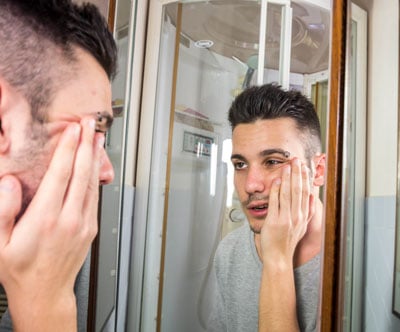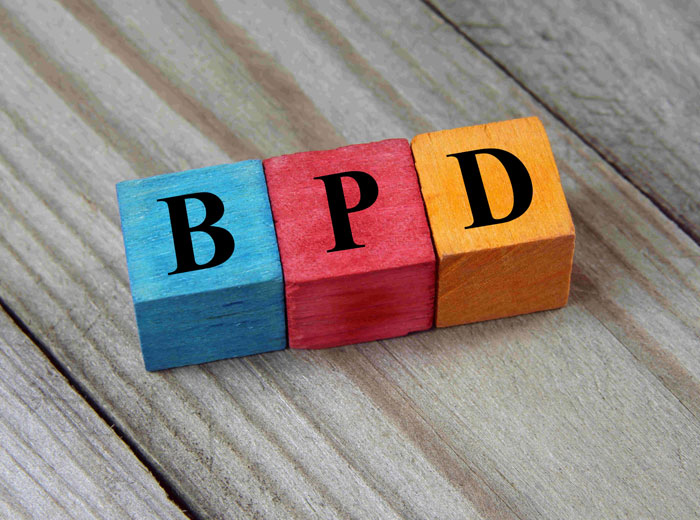Learn More About
Rehab Programs
Borderline personality disorder (also known as BPD) is a complicated and problematic condition that’s often misunderstood by the public. A borderline personality disorder affects a person’s self-perception and has a direct impact on how they maintain relationships. A person dealing with BPD will experience an unstable mood and behavior in their day to day life. The signs of borderline personality disorder include a variety of specific and oftentimes unpredictable behavior.
BPD can be extremely debilitating and stressful for the individual and those around them. Unfortunately, addiction and drug abuse are often used to cope with the symptoms of borderline personality disorder. However, drug use usually leads to worsened effects like rage and depression among others. Mixing a mental disorder like BPD and addiction can be a dangerous and chaotic combination. This can lead to a co-occurring (or dual diagnosis) disorder and can have devastating effects on a person’s life and wellbeing.
Cases of borderline personality disorder and addiction should be approached with care and patience. It is recommended to reach out for quality help and get the proper treatment for both conditions. If you notice the signs of borderline personality disorder and addiction, it may be time to get help. North Jersey Recovery Center is here to help you or a loved one overcome both of these crippling conditions today.
A Close Look at Borderline Personality Disorder
A borderline personality disorder is described as a distorted self-image, impulsive behavior, unstable relationships, and extreme emotions. People who suffer from BPD tend to also experience signs of depression, anxiety, eating disorders, and other physiological disorders. The signs of borderline personality disorder are often destructive and can affect a person’s relationships and overall health.

The specific reason why a person might develop BPD is still unknown but there are a few factors that might play a role in that. Some of the most common factors that may lead to someone developing BPD include:
- Genetic factors – BPD, along with other personality disorders, typically run within family members and siblings. Some might be predisposed to developing BPD as time goes on.
- An abusive or dysfunctional family environment – Children who were neglected or abandoned may have a higher chance of developing BPD when they grow up. Abuse (physical or sexual) is also known to cause borderline personality disorder.
- Neurotransmitters – Neurotransmitters help regulate and control a person’s emotions and urges. Changed neurotransmitters in the brain may lead to someone developing BPD.
Regardless of the reason why someone may develop BPD, it is crucial to get proper help. This is especially true when dealing with dual diagnosis cases. No matter what happens, taking the first step is vital to making a change in you or your loved one’s life.
Signs of Borderline Personality Disorder
There are several symptoms and signs of borderline personality disorder. These can affect a person in their day-to-day life while making it hard to maintain relationships. Sometimes the signs of borderline personality disorder are mistaken with those of substance abuse. This is why it can be hard to spot BPD in people struggling with addiction and borderline personality disorder. With this in mind, there are a few key symptoms that may help spot BPD in a loved one. Some of the signs of borderline personality disorder include:
- Paranoia
- Manipulation
- Fearful of being alone
- Severe emotional swings
- Impulsive or risky behavior
- Suicidal thoughts and actions
- Periods of depression and anxiety
- Feelings of emptiness or hopelessness
- Intense changes in how they view others
- Periods of extreme aggression and anger
- Possible eating disorders (anorexia, bulimia, etc.)
The effects of BPD on a person can leave them feeling worthless and hopeless. Their impulsive behavior can lead to isolation and pushing people away. Isolation can be the cause of depression and intense anxiety. This can be extremely painful for those suffering from BPD because they commonly have a fear of being abandoned/alone. They may feel disconnected from their true self and may try to force change in order to build relationships.
Borderline Personality Disorder and Addiction
It is not uncommon to see a connection between those suffering from borderline personality disorder and addiction. Those suffering from BPD may turn to drugs to hide their symptoms or to feel better about themselves. The effects of certain substances may seem like self-medication or aid for those suffering from borderline personality disorder. However, this combination ends up creating more symptoms and stress.
The symptoms and signs of borderline personality disorder are very similar to those of addiction. Both addiction and BPD have symptoms of self-destructive behavior, mood swings, impulsive behavior, unstable relationships, depression, and other effects. Since these two conditions are so similar, it can be hard to diagnose both of them separately. Suffering from BPD and addiction is considered a co-occurring disorder (or dual diagnosis). A co-occurring disorder means a person is dealing with both a mental illness (BPD in this case) and an addiction.
This can be very tricky when diagnosing and getting treatment for BPD and addiction. Those suffering from the condition have been said to be both demanding and resistant to treatment. With this in mind, the longer a person is in treatment the higher chance for a positive outcome. While a dual diagnosis of this level can be painful and complex, there is always light at the end of the tunnel.
Treating Borderline Personality Disorder and Addiction as Co-Occurring Disorders

Once the signs of borderline personality disorder and addiction are spotted, it is time to move on to treatment. Co-occurring disorders can be very complex and involve a lot of patience and support. When co-occurring disorder treatment begins, both BPD and addiction will be treated separately. However, both conditions will be treated simultaneously. It’s important to focus closely on the two conditions separately while treating them both at the same time.
Co-occurring disorders involving BPD almost always require residential or inpatient treatment. This sets the person up for the highest chance of success. Inpatient treatment is recommended in these cases because the person will be living in the rehab center for a period of time. This allows 24/7 support and guidance at any time. BPD and addiction symptoms/withdrawals can be extremely unpredictable and problematic during treatment.
Treating Addiction
For addiction, the treatment typically begins with detoxification. Detox helps relieve some of the intense withdrawal symptoms that occur when a person quits using a substance. Medication is typically used during the process to tame some of the withdrawal symptoms as they focus on getting clean. After detox, a person will most likely move on to inpatient/residential treatment. In milder cases of addiction, a person may opt to try intensive outpatient or outpatient treatment.
During recovery, a person will attend several therapy types to help overcome their addiction. Addiction can affect the mind and body in several ways. Understanding why you abused substances in the first place and how you plan to quit is crucial to a successful recovery. Several of the same therapy methods are used for both BPD and addiction. However, each is specific to the two separate conditions.
Treating Borderline Personality Disorder
For Borderline personality disorder, the treatment typically consists of several therapy options. These are used to help you cope with the stressful and inconsistent moods associated with BPD. The signs of borderline personality disorder may show themselves during addiction treatment. Therapy is vital to understanding and changing a person’s thought processes when it comes to borderline personality disorder. This requires patience and several different types of treatment.
Cognitive-behavioral therapy (CBT) is one of the most widely used and accepted forms of therapy for both addiction and BPD cases. CBT focuses on helping a person identify and change their thought patterns/behavior. This is crucial to changing these destructive habits and feelings. Being able to cope with and change your thought processes is one of the best ways to overcome borderline personality disorder and addiction. Other forms of therapy for addiction and BPD include:
- Family therapy
- Group therapy
- Support groups
- Holistic therapy
- Dialectical behavior therapy
BPD can be especially destructive when left untreated. A person will feel its effects on almost every part of their life, through school, work, and daily life. It’s important to turn to trained specialists that know how to help through these struggles. At the end of the day, the signs of borderline personality disorder and addiction will become apparent. Don’t wait to get proper help and guidance through your struggles.
Start Your Journey at North Jersey Recovery Center
North Jersey Recovery Center is determined to make sure you or a loved one are cared for and treated effectively. If you noticed the signs of borderline personality disorder in a loved one, don’t hesitate to get help. Our recovery center offers access to some of the best therapists and physicians in the New Jersey area.
All the tools that are necessary for recovery are here for you and your loved ones. Don’t wait to turn your life around, act now. Contact us today to learn more about addiction treatment and dual diagnosis cases.




